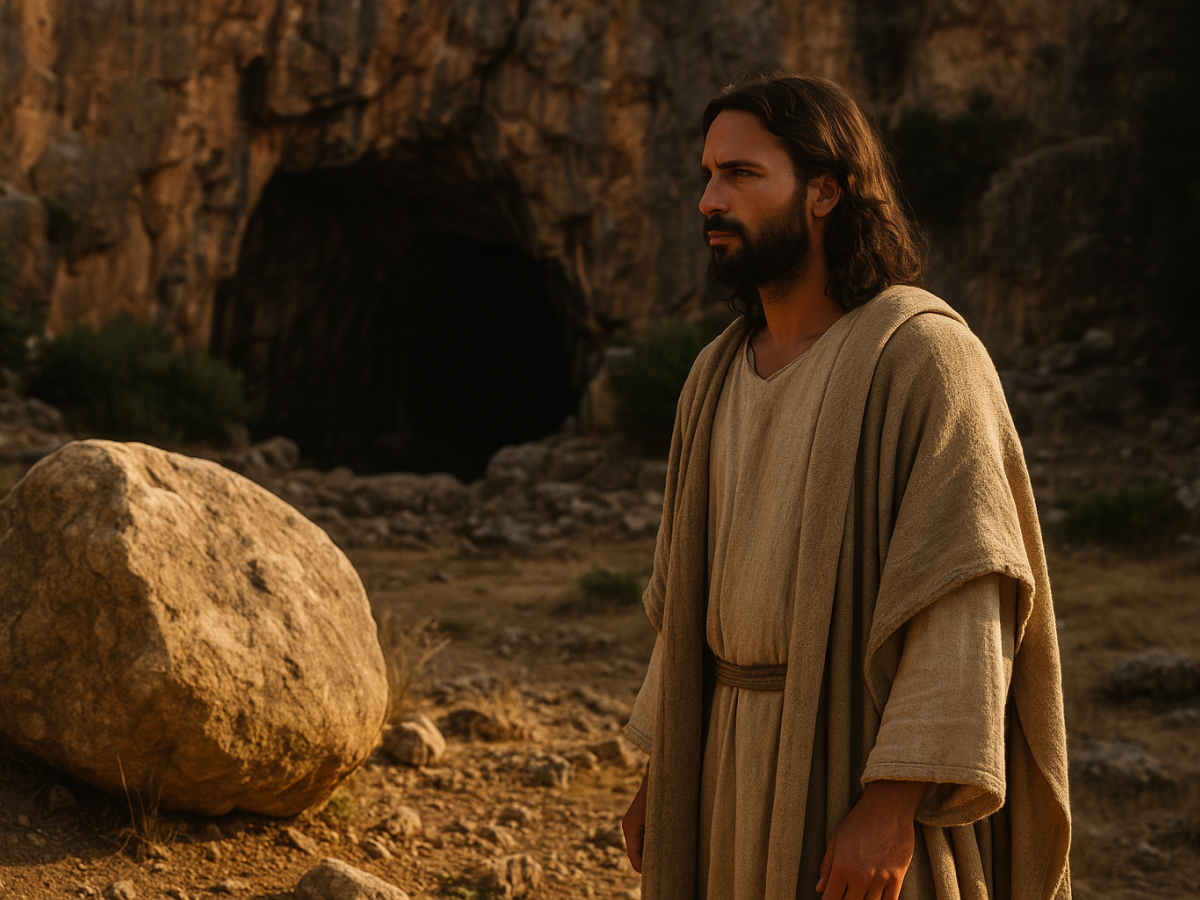
When the Rock Meets the Gates of Hell
In one of the most dramatic moments in Matthew’s Gospel: Yeshua turns to His disciples and declares, On this Rock I will build my congregation, and the gates of Hades will not prevail against it (16:18). To modern ears, it sounds like a nice metaphor. But for His Jewish hearers, the imagery of the Rock carried deep covenant weight.
In the ancient world, rocks were not just any old Rock. These were covenant witnesses—immovable testimonies to agreements and boundaries. A stone was more than a marker; it was an anchor for memory, identity, and allegiance.
In Mesopotamia, kings set up boundary stones called kudurru. These weren’t just landmarks but rather inscribed decrees that were often sealed with curses to invoke divine enforcement. To break that covenant was to invite judgment. In Israel too, stones carried this covenantal role. Joshua set up twelve stones at Gilgal to remember the crossing of the Jordan. Jacob raised a stone at Bethel to mark his vow. Even altars of uncut stone were declarations of faithfulness, standing for generations as public witnesses of God’s dealings with His people.
But Israel’s confession went further. Unlike the inert stones of the nations, Yahweh Himself was the Rock. “The Rock, His work is perfect, for all His ways are justice” (Deut. 32:4). He was not merely represented by stone; He was the living guarantor of covenant faithfulness—enduring, immovable, unchanging. To call Yahweh the rock was to declare Him the foundation of Israel’s life, security, and hope.
The Covenant Confession
That’s the backdrop for Matthew 16. Yeshua asks His disciples, “Who do you say that I am?” Peter replies: “You are the Messiah, the Son of the living God.” This isn’t a theological answer—it’s a covenant oath. It echoes Sinai, where Israel pledged: “All that the Lord has spoken we will do.” Israel was formed at Sinai by their covenant loyalty to Yahweh. Now, the new covenant assembly, the ekklesia would be formed by loyalty to Yeshua as Messiah and Son.
The Rock is Messiah Himself. And the confession of His kingship is the covenant marker. To declare Yeshua as Son of God is to stand as if on covenant ground as immovable as stone.
The Gates of Hades: A Cosmic Counter Claim
And Yeshua chose the location carefully. They were in Caesarea Philippi, at the base of Mount Hermon, a mountain infamous in Jewish tradition as the site of cosmic rebellion (1 Enoch 6). The Watchers descended here, unleashing violence, sorcery, and idolatry upon the earth. At its base was a gaping cavern, the shrine of Pan, called in the first century the Gates of Hades. Out of that cavern flowed one source of the Jordan, itself a threshold river tied to promise, inheritance, and covenant.
But Caesarea Philippi was not neutral space. The cliff face was carved with shrines to Caesar and Pan. It was a mountain of idolatry, a monument to pagan empire and fertility cults. For Jews, this place symbolized everything chaotic and corrupt—the very gateway of the underworld.
And it was here that Yeshua made His announcement. Not in Jerusalem’s Temple, not in the quiet of Galilee, but in the shadow of pagan shrines, idols, and demonic activity. Here He declared: “On this Rock I will build my congregation, and the gates of Hades will not prevail against it.”
Yeshua’s words were a direct confrontation, a kind of cosmic counter claim. Where others carved false gods into the rock, He set Himself as the true Rock of covenant. Where pagan priests claimed power at the “gates of Hades,” He declared those gates would not withstand His kingdom. Where Hermon’s traditions told of rebellion and corruption, He established the foundation of order, faithfulness, and new creation.
In the Torah, Israel is urged to cling to God’s words, to remember that life depends on covenant loyalty. Deuteronomy declares Yahweh the Rock whose work is perfect, whose covenant is unshakable. Yeshua’s declaration picks up this very language. He doesn’t discard Israel’s imagery; He fulfills it.
By identifying Himself as the Rock, He claimed for Himself what had been said of Yahweh: the foundation of life, covenant, and hope. By receiving Peter’s confession, He marked out the new covenant oath: allegiance to Him as Messiah and Son. The old covenant assembly formed at Sinai is now mirrored in the new covenant congregation formed at Caesarea Philippi. Both are founded on confession, loyalty, and trust.
The Unshakable Community
The promise matters: “The gates of Hades will not prevail against it.” The covenant community built on Yeshua’s kingship is unshakable. Nations rise and fall. Empires boast and collapse. Shrines crumble into dust. But the confession of Messiah as Son of God endures.
The ekklesia is called to stand firm on the Rock and to push back against the gates. Our identity is not in the shifting sands of culture or empire, but in the immovable covenant of Messiah. We are heirs of Sinai, but more, we are citizens of the kingdom whose Rock has already overcome death.
And so, the question still comes: “Who do you say that I am?” The covenant hinges on the confession: “You are the Messiah, the Son of the living God.” That confession marks us as part of the assembly built on the Rock.
In a world of shrines and idols—whether carved in stone or etched into glowing screens, the covenant people of God are called to stand on the Rock. We face our own “gates of Hades”: cultural rebellion, political chaos, personal storms of death, loss, or despair. But the promise remains. Those gates will not prevail.


Leave a Reply